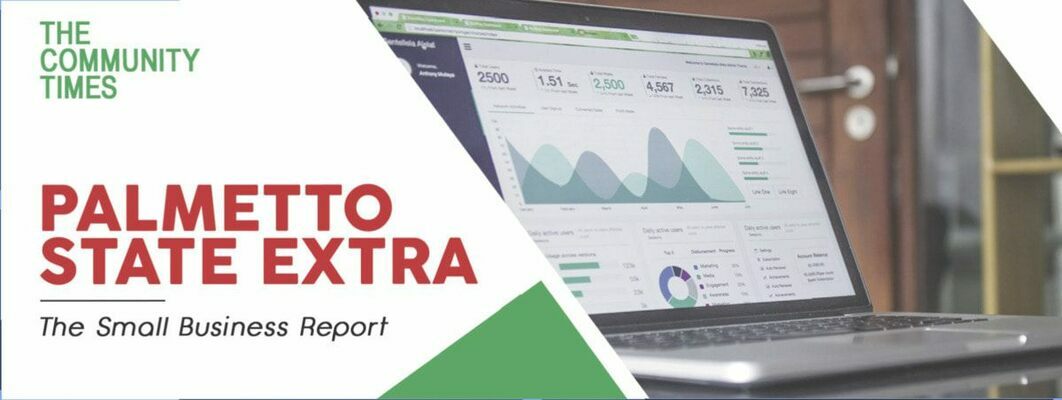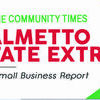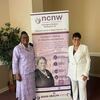Palmetto State Extra: The Small Business Report

**SC Consumers Report Losing Over $6.4 Million To ID Theft/Scams In 2021**
COLUMBIA, S.C. – It’s easier than ever for fraudsters to reach you and/or find your information. Consumers should be on high alert as scammers reach out via letters, phone calls, text messages, social media, fake websites and more. Unfortunately, the schemes have been successful in separating SC consumers from more than $6.4 million in 2021 according to the South Carolina Department of Consumer Affairs’ (SCDCA) annual Identity Theft and Scams report. Additional highlights include:
Identity Theft
Consumers filed 444 reports of identity theft.
The top three discovery methods for identity theft were by government notification (21.23%), store or credit card notification (19.38%), and bank notice (15.38%).
The sum of potential losses to the consumer was $592,970, and the sum of actual losses reported was $3,451,579.
The top three counties that reported identity theft were Richland (13.48%), Horry (7.42%) and Charleston (6.74%).
Scams
Consumers filed 738 scam reports.
Fifty-three percent of consumers who reported scams were contacted by phone.
The sum of potential losses to the consumer was $1,047,905 and the sum of actual losses reported was $2,991,577.
The top three counties that reported scams were Richland (13.69%), Spartanburg (12.20%) and Lexington (9.62%).
All SCDCA reports are available for download at https://consumer.sc.gov/news/reports. Consumers are encouraged to report scams and identity theft to our Identity Theft Unit. Call (844) TELL DCA (835-5322) or fill out a Scam or Identity Theft Report form by visiting our website and clicking on the “How Do I...” button.
**Buying A Business VS Starting A Business: Which Is Right For You?**
Buying an existing business might be a good fit for you if you are concerned about starting your own business from scratch and the costs associated with a new business. When you buy an existing business, it involves taking over an operation that is already profitable and generating cash flow.
These businesses typically have a strong customer base and reputation, as well as employees who are familiar with all aspects of the business. Moreover, there is no need to set up new procedures, systems, and policies, since a proven formula for running the business already exists.
Though it can be more expensive to purchase an existing business than to start from scratch, it’s actually easier to procure financing for an existing business than for a new one. It is generally easier for banks and investors to deal with a business that has already proven its track record. You can also obtain valuable legal rights such as patents or copyrights if you purchase a business.
Buying a Franchise
Many feel that buying a business is less risky than starting your own, especially if you can find a well-managed, profitable one—and negotiate a good price. An existing business provides immediate cash flow, and the difficult start-up work has already been done.
You’ll have a customer base and suppliers. The business’s financial history shows what to expect—and often makes it easier to get loans or attract investors.
However, you will need to invest a large amount upfront, especially if the business hasn’t been profitable lately.
Franchising allows a business owner to open their own branch or branches of an existing brand. A franchise license entitles the holder to market particular products or services under a brand or trademark according to prearranged terms or conditions. In exchange for fees and royalties paid to the parent company, the franchisee can use the business format and systems of the franchisor.
The main advantages are a proven market for the product or service, and tested and specific operations management policies. The main disadvantages stem from the power that the franchisor has over the franchisees.
Purchasing an existing business makes it much easier to plan and raise capital, because of the historical records.
Franchising is becoming an increasingly popular method of establishing and operating a small business. Many entrepreneurs find the opportunity to operate their own business with slightly less risk an attractive option, but operating a franchise is more restrictive than the other two forms of ownership.
**Spring Yourself Onto an Appointed Board**
Are you interested in learning more about serving on an appointed board? It your answer is "yes", this is your opportunity to get answers.
The third annual SpringBoard Conference is just two weeks away. Gain the confidence and knowledge to seek positions on publicly appointed boards and commissions.
Learn the important role boards and commissions play in our government
How the decisions boards make directly impact our everyday lives
Understand the responsibilities associated with serving
We’ll help you find the right board for your interests and experience, submit, and follow-up on your application.
New this year: level up your board service and navigate the politics of the appointment process!
When: Tuesday, May 17, 2022, 1–5 p.m.
Where: Columbia Museum of Art, 1515 Main Street, Columbia.
**CDBG Public Notice**
The City of Florence will be holding a Public Hearing to solicit citizen’s input on the use of the City’s 2022-2023 Community Development Block Grant (CDBG) award. This Public Hearing will be held on Monday, May 9th, at 1pm, during the Florence City Council meeting at the City Center Building at 324 W. Evans Street.
**The Moms and Pops Who Own These Businesses**
Owners of small businesses come from a variety of demographic backgrounds and Census Bureau data show just how diverse they are.
The Annual Business Survey (ABS) produces estimates of employer firms by owner demographics. A firm is a business that consists of one or more domestic establishments the reporting firm specified are under its ownership or control.
In 2019, the most recent ABS data available, among firms with fewer than 500 employees in all sectors of the U.S. economy:
Approximately 1,207,000 were owned by women.
Approximately 3,501,000 were owned by men.
Approximately 1,076,000 were minority-owned: 134,100 had Black or African-American owners; 581,00 had Asian owners; and 347,000 had Hispanic owners.
**How Small Businesses Have Fared During The Pandemic**
The Small Business Pulse Survey (SBPS) is an experimental data product measuring the effect of changing business conditions amid the coronavirus pandemic. SBPS is classified as experimental because it does not meet the same quality standards as our regular data products, like CBP and ABS.
SBPS data complements existing Census Bureau data collections by providing high-frequency, detailed information on the challenges small businesses have been facing during the Coronavirus pandemic.
We compared SBPS data collected in January 2021 and in January 2022 for two survey questions:
In the last week, did this business have a change in operating revenues/sales/receipts, not including any financial assistance or loans?
In the last week, did this business have a change in the number of paid employees?
The percentage of U.S. small businesses reporting decreases in revenues in the last week decreased from 40.4% in SBPS Phase 3 (1/4/2021 – 1/10/2021) to 33.0% in SBPS Phase 7 (1/3/2022 – 1/9/2022).
**Small Business Week Turns Eighty-Three**
In 1939, Rick and Margie Segel created Mom and Pop Business Owners Day in honor of their parents’ hat shop that opened that year. Eighty-three years later, it’s still celebrated and continues to highlight the valuable contributions small businesses make to the U.S. economy.
The Small Business Administration defines a “small business’’ as an establishment with fewer than 500 employees.
The U.S. Census Bureau recognizes the importance of all small businesses and provides resources and tools to help them.
Please support The Community Times by subscribing today!
You may also like:







